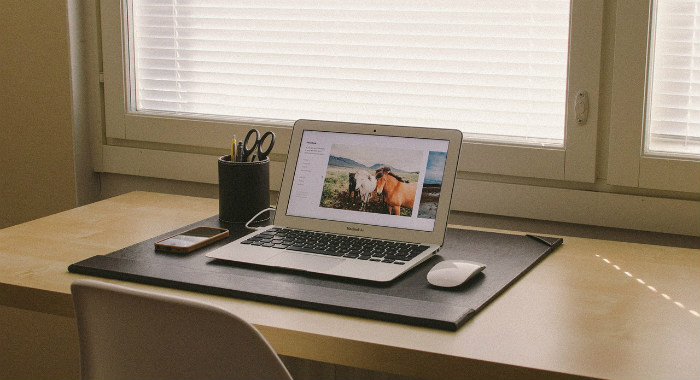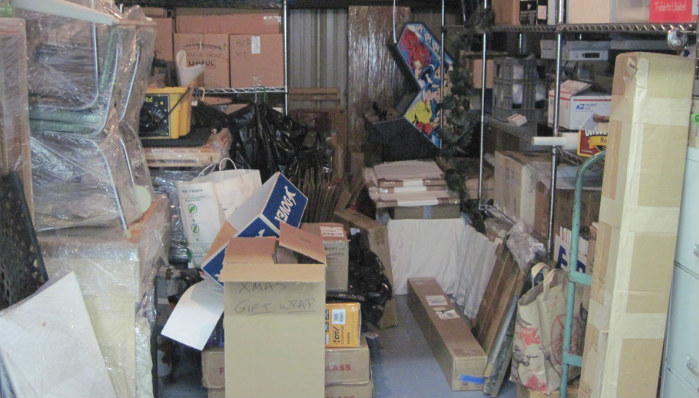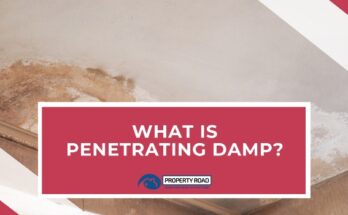Are you strapped for cash and want to make some extra money? If you have a spare room you don’t really use, why not use it to earn some extra cash.
Probably the most common way to make money from a spare room is by renting it out. But even here there are different options.
Renting out rooms has exploded in popularity over the last few years, thanks to the growth of room sharing platforms and the desire of many people to find cheaper accommodation.
However, there are other ways how your unused spare room could bring in an extra income. Find out in our guide about how to make money from your spare room.
1. Renting Out Your Room For Short Stays
The law in the UK recently changed to make it easier for homeowners to rent out their properties for short periods without having to apply for planning permission.
The new rules say that homeowners can rent a room for up to 90 days without breaking the law, providing the perfect opportunity for people to make money from their spare rooms immediately.
The Rent a Room Scheme even allows you to earn up to £7,500 a year tax-free. Now that sounds like a nice little earner, right?
The great thing about short-term lets is that you can use them to trial the idea of letting your home out for the long term.
Rather than hosting a permanent lodger, you can see how you and your family adjust to having somebody else live in the house with you for a few days or weeks. You may discover that it’s an easy and cheap way to supplement your income or that it’s not something that suits your lifestyle.
You could also use short term lets as an opportunity to narrow down the type of tenant that you’d like to live with, be it a student, a young professional, or even a couple.
Short term lets also allow you to dip in and out of the market as and when you please. If you don’t want somebody staying with you over the Christmas period, you can just wait until the new year before putting your room back up for rent.
Because renting for short stays offers tenants increased flexibility, you can usually charge a slight premium over the yearly rate, making it more profitable than longer-term ventures, provided you keep occupancy high.

In our home, we have a separate garage on the other side of our garden. Around 50% of the garage is made up as guest accommodation. There is a bedroom, dining area, small kitchen area, and a bathroom. As we are located in a rural position, it would be a nice little holiday let.
It was certainly one of the things that appealed to us when we bought the property. However, we see that option as a last resort as we do like our privacy, but it’s good to know our spare room could be a nice little earner if we ever decided to rent it out!
2. Finding A Permanent Lodger

Unlike renting out your room for short stays, taking in a lodger is a more significant commitment, but potentially a lot more lucrative too.
While your room may sit idle for part of the year as a short stay let, a permanent lodger will pay you a consistent, fixed sum, month after month.
There are some potential downsides and special considerations though for taking on a permanent lodger. Firstly, you’ll have to think carefully about how they will get on with the rest of the people in your home. Some homeowners with children may feel uncomfortable with certain kinds of lodgers in the house.
You’ll also have to consider the preferences and habits of lodgers.
Some might need to get up early in the morning because of their work, creating additional noise that might disturb everyone else. Others might want to be able to smoke indoors, which, again, could be an issue.
To ensure that your relationship with your lodger is good, set out rules from the start. This can include rules regarding smoking, noise and cleaning routines. You should also make clear how your lodger can use the rest of the house.
For example, can they use your kitchen to cook their meals and sit in the living room watching TV? By setting expectations from the start, you can ensure that both the lodger and anyone else living in your home know how to behave.
3. Getting a Roommate
Another way to make money from your spare room is to find a roommate. This could be a friend or a stranger.
Like as a student, you would be sharing your house with someone. So while they would be using your spare room, they would also use the rest of your house.
This is a great way if you are also looking for some company. Having a roommate can be fun, especially if you are living alone.
As they will be sharing your whole house or flat, you can expect them to also contribute to bills, such as utilities, internet and TV.
Like with a lodger, you might want to set ground rules from the start. After all, you don’t want to have to clean after your roommate, right? If everybody pulls together and is considerate of each other, having a roommate can be very rewarding.
Not just from a financial point of view, but also in terms of social company.
4. Host Professionals During The Week

Another way to make your spare room work for you is by letting it out to professionals that work away from home. This means they will only be there during the week, so you have the weekends to yourself.
Many people work far away from where they live. Rather than commuting, they decide to stay in the city they work in during the week and only go home at the weekend.
The partner of a friend of mine did that. They lived in Brussels, but he worked in London. Rather than commuting, he rented out a room in London during the week. It made sense, because using the Eurostar every day would have been much more expensive than renting a room for the week.
Those people don’t tend to need much, as they want the accommodation to be as cheap as possible, given that they also have to pay for rent or a mortgage for their home.
My friend’s partner had a small room with a bathroom next door. He ate out or cooked basic meals on a camping stove.
How much should you charge to make money from renting your room?
You can find out how much other homeowners in your area are making on sites like SpareRoom, but don’t assume that you have to charge the same. Think about features that your home has that might make it more desirable, such as proximity to transport links, amenities, or extra bedroom space.
It’s worth remembering that many long-term tenants will expect their hosts to keep not only the shared areas of the home clean and tidy but their living quarters too. When calculating your monthly return, don’t forget to include the cost of cleaning alongside any additional bills.
When we bought our previous house, the owner had rented out her spare room to a lodger. Since the property was close to the University, she had found a lecturer who needed nearby accommodation.
The house was well set up for it, as it was a dormer bungalow with three rooms and a bathroom downstairs and two further rooms, both with en-suite, upstairs. The lodger had the use of the three downstairs bedrooms and the bathroom.
They could be accessed from the front door without having to pass through any of the other accommodation. This meant the lodger could come in and go to his space without disturbing the other occupants.
While it was never an option we decided to pursue, it was nice to know it was at least an option should we need the cash. We don’t know exactly how much she was earning from it, but we do know it wasn’t a bad amount and helped her cover her bills after she had gone through a divorce.
5. Taking In Foreign Students

The UK has one of the most celebrated education sectors in the world, attracting hundreds of thousands of students in search of quality teaching every year.
Although many of those students will end up in student accommodation, some will choose to lodge privately with families.
As a homeowner, you can charge a considerable amount of money each week to host a student, anywhere from £80 to £200, depending on the level of service.
Some homeowners with busy lives just rent out a room to international students, letting them get on with their own cleaning and laundry. But many try to differentiate themselves from student digs by doing extra things, such as washing, cooking, and support with the English language.
This probably would have been an option for us in our previous home. After all, if the room was good enough for a lecturer, I’m sure a foreign student would have been happy with it too.
It’s worth considering the location of your home. If it’s anywhere near a University, it will probably appeal to both lecturers and students.
6. House Language Students
If you don’t want to have someone living with you long-term, you could become a host for language students. They come to the UK to learn English and stay at a host family.
Depending on the course they’re on, they might only stay for a matter of weeks, months or even the whole year. So this could be a great option if you only want to host someone occasionally, similar to a short-term rental.
One thing you should consider though is that there is a difference between a language student and a short-term tenant. The tenant just wants a room to sleep in and a bathroom, and maybe use your kitchen to cook meals.
A language student will almost become part of your family. They will need to be fed and looked after, like having their laundry cleaned. The reason language colleges look for host families for their students is, so they can immerse themselves in the language.
This means you would be expected to spend time with them and talk to them, so they can practise their English. They also tend to be young, mostly under 20. This means you also have a duty of care for them.
It’s a bit like having your child’s friend staying with you. So only go for this option if this is OK for you and everyone else that lives with you.
You will need to live in an area with a language college that needs host families though, so it won’t be an option for everyone.
7. Starting A Home Business

Few employers pay you compensation for the cost of getting to work, but it is a real cost and something that many people are sick of paying.
If you’ve got a spare room, don’t want to rent it out, and would like to avoid commuting, then creating a home office is the ideal solution.
By working in a home office, you can both save money on travel and determine your hours of work. You can also offset some of your office and mortgage expenses against your income, reducing your overall income tax bill.
This was something we did when we moved into our current home. In fact, we didn’t just convert one spare room to an office – we converted two!
This means we can both work from home and build up our own separate businesses without getting in each other’s way. Plus, we’ve saved money by not having to commute or rent office space.
The other great thing is we can claim a ‘work from home’ allowance to help reduce our tax bill. Essentially, it helps cover some of the increased costs you might incur by working from home, such as higher energy bills.
8. Create A Space For Tourists
People want to have the freedom to travel, and with sites like Airbnb and HomeAway, the cost of tourist accommodation is coming down. No longer are people with wanderlust limited to expensive hotels and holiday lets: they can choose to stay with whomever they want, usually at a much lower price.
The good news for homeowners is that they can capitalise on this trend and make money renting rooms by opening up their homes to tourists.
Although tourists travel to all sorts of locations, people who live in popular destinations, such as London, Brighton, Edinburgh, York, and coastal resorts, stand to make the most money.
More rural locations, for example in national parks, are also a hit with many tourists, especially for families.
If you do decide to advertise your property to tourists on an app, then make sure that you understand your target audience and appeal to them directly. For instance, if you want to rent a property in an area popular with mountain bikers, tell them in your advert that you have bike washing facilities and safe storage for their equipment.
9. Run A Pop-Up Restaurant At Home

If like cooking and entertaining, why not turn your spare room into a pop-up restaurant. Unlike a normal restaurant, the pop-up version isn’t open every day. It only opens on specific days for an evening for a limited number of guests.
We used to go to a lady’s home in a town near us. She was from India and cooked authentic food from her home town using family recipes. Once a month she opened her home to a small number of guests.
It started off with her inviting friends, but it was so popular that she decided to host a pop-up restaurant for strangers too. Her food was delicious and special, because you couldn’t get it anywhere else. Unless you travelled to Kerala, where she was from.
Your spare room could become the dining room of your pop-up restaurant. You will need to be able to offer something extraordinary though. Something that people won’t be able to get anywhere else.
Maybe your family comes from a different country with a different cuisine. Or maybe you are just really good at certain dishes.
The good thing about pop-up restaurants is that you can decide how often and when you hold one. You could do it every week, once a month or only for special occasions.
If you can offer something really special, people will be willing to pay a good amount of money. But be sure to cost your meals correctly. You don’t want to lose money but make it. Write down the cost of all the ingredients you will need for one person and the time it takes you to make it.
Then add a profit margin you are happy with, but without making the meal too expensive. Now you know what to charge. You might want to consider to also include drinks in the meal.
You can’t cook? Maybe a friend or your mum or dad would be interested in joining you in this venture. The advantage would be that you have an extra pair of hands. Cooking, serving and entertaining at the same time can be stressful.
If you decide to go down this route, you should be aware that you will have to register your pop-up restaurant. And there will be some regulations you have to adhere to, for example in regards to food safety. The website of the Food Standard Agency will give you all the information you need.
10. Offer Storage

Not keen on people living in your home or not a foodie? Well, why not rent our your spare room as storage. This is a way for your spare room to make you some extra cash without you having to put in any effort.
The amount of money will depend on how much space you have to offer. For a small spare room you can ask less than say a double garage or a shed.
There are online platforms where you can register your space and people can then find you and book to store their stuff with you, for example Stashbee.
When my wife moved to the UK from Brussels, she couldn’t take all her stuff over at first. She only had a limited budget, so she decided to store her things in someone’s garage. She found them online via a platform similar to Stashbee.
The costs were much lower than if she had used a commercial storage facility. She kept it there for a few months and everything worked smoothly.
There are two things you have to consider though: people might want to access their stuff at any time. So you might have to be flexible. Storing the things of someone else might also have an impact on your home insurance.
How To Make Money From Your Spare Room – A Summary
As you can see there are many ways you can make your unused spare room work for you. Whether you just want some extra cash every now and again or are looking for a long-term income on the side, there are options.
While renting out your spare room is the most obvious one, you can also use it to store other people’s stuff, work from home or host a pop-up restaurant.
When times are tough, it’s good to know that your spare room could be the answer to your money woes. But make sure that you do your research and that everyone living with you is comfortable with whatever route you want to go down.




